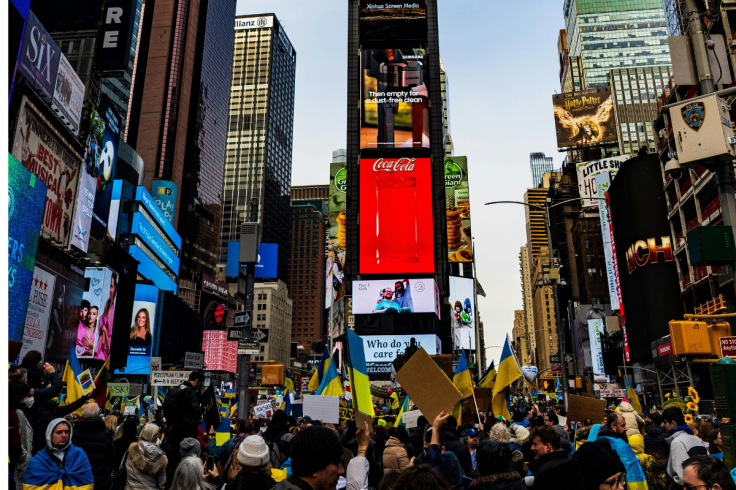Will Trump's Ukraine Map Redraw New Borders for Peace? Diplomacy Sparks Summit Benefits
Analysts warn of a bad deal for Ukraine, 'This seems to be a deal between the gangster and the real estate mogul.'

As Russia's war in Ukraine enters its fourth year, US President Donald Trump's push for a peace deal has ignited global debate, with a summit planned for 15 August 2025 in Alaska between Trump and Russian President Vladimir Putin.
Trump's proposal, involving territorial swaps to end the conflict, has raised hopes and fears, with Ukrainian President Volodymyr Zelenskyy rejecting any cession of land.
The talks, described as a diplomatic gamble, could reshape Eastern Europe's borders, impacting millions and global stability, while European leaders scramble to ensure Ukraine's voice is heard.
Trump's Peace Plan and Territorial Proposals
Trump's peace initiative, driven by his campaign promise to end the war within 24 hours, centres on swapping of territories to resolve the conflict that has killed thousands and displaced over 8 million Ukrainians since Russia's 2022 invasion.
On 8 August 2025, Trump told reporters, 'There'll be some swapping of territories to the betterment of both,' suggesting Ukraine might cede parts of Donetsk, Luhansk, Zaporizhzhia, and Kherson, which Russia occupies, covering nearly a fifth of Ukraine.
He has also stated, 'Crimea will stay with Russia,' a position Zelenskyy fiercely opposes, asserting, 'Only the Ukrainian people have the right to decide which territories are Ukrainian.'
Trump's envoy, Steve Witkoff, met Putin on 6 August 2025, proposing a ceasefire and Ukraine deferring NATO membership, but Russia demands full control of annexed regions.
The plan, estimated to cost £2.3 billion ($3.08 billion) in diplomatic and peacekeeping efforts, has sparked concerns about Ukraine's sovereignty, with X posts from @Pankajgarg004 noting, 'Trump says peace might mean Ukraine ceding land plus giving the U.S. a cut of its mineral wealth.'
Ukraine’s borders on the table?
— PANKAJ GARG (@Pankajgarg004) August 9, 2025
Zelenskyy floated a land-swap with Russia. Moscow said “never.”
Trump says peace might mean Ukraine ceding land plus giving the U.S. a cut of its mineral wealth.
Now, a Trump–Putin summit on Aug 15 could redraw the map, without Ukraine in the room.
European and Ukrainian Resistance
European leaders, fearing exclusion, issued a joint statement on 9 August 2025, signed by leaders including UK Prime Minister Keir Starmer and German Chancellor Friedrich Merz, insisting that 'the path to peace in Ukraine cannot be decided without Ukraine.'
They argue international borders must not be changed by force and propose reciprocal territorial withdrawals.
Zelenskyy, after a 7 August 2025 call with Trump, emphasized, 'The priorities are absolutely clear: stop the killings, and Russia must agree to a ceasefire.'
X posts from @KyivIndependent reflect sentiment: 'Ukrainians will not gift their land' — Zelensky rejects idea of territorial concessions to end Russia's war.'
⚡️'Ukrainians will not gift their land' — Zelensky rejects idea of territorial concessions to end Russia's war.
— The Kyiv Independent (@KyivIndependent) August 9, 2025
The day before, Donald Trump claimed that peace talks between Moscow and Kyiv would likely involve "some swapping of territories."https://t.co/mftDqVzEy0
The Coalition of the Willing, led by Starmer and French President Emmanuel Macron, pushes for peacekeeping forces to secure any deal, potentially costing £1 billion ($1.34 billion) annually.
Global Stakes and Summit Implications
The Alaska summit could redefine global alliances, with Russia seeking to retain Crimea, a strategic Black Sea hub, and Donbas, rich in coal and lithium.
Trump's frustration with Putin, evident in his 28 July 2025 ultimatum of severe tariffs on Russian oil buyers like China and India if no deal is reached, signals a hardening stance.
The US has suspended £7.5 billion ($10.05 billion) in aid to Ukraine since March, pressuring Zelenskyy, though a minerals deal signed in April gives the US a stake in Ukraine's resources, potentially worth £15 billion ($20.1 billion).
Analysts warn of a bad deal for Ukraine, with Hamish de Bretton-Gordon telling NBC News, 'This seems to be a deal between the gangster and the real estate mogul.'
The summit's outcome could stabilize or destabilize the region, with success hinging on including Ukraine to avoid a forced partition, likened by Trump's envoy Keith Kellogg to 'postwar Berlin.'
© Copyright IBTimes 2025. All rights reserved.





















